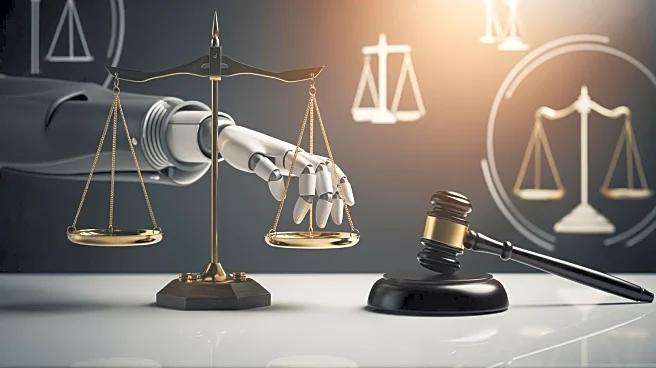What's Happening?
A recent study by Dorottya Biczi from Széchenyi István University explores the legal challenges posed by self-driving vehicles, particularly regarding accountability in accidents. The study, published
in Engineering Proceedings, examines the liability issues and remedies associated with automated decision-making in autonomous vehicles. Biczi outlines the six levels of automation, noting that higher levels pose unique legal dilemmas as human intervention becomes optional or impossible. The study highlights the lack of a 'legal personality' for AI, which complicates assigning accountability in accidents involving autonomous vehicles. Biczi proposes a civil law-based compensation model to address the accountability gap, suggesting manufacturers contribute to a state-managed insurance fund to compensate victims of AI-driven harm.
Why It's Important?
The study underscores the urgent need for legal systems to adapt to the growing presence of autonomous vehicles. As these vehicles become more common, unresolved accountability issues could undermine public trust in AI-driven transportation. The proposed civil law-based compensation model aims to balance technological innovation with victim protection, potentially influencing future legislation. The study also calls for greater transparency in AI systems to facilitate judicial oversight, which could lead to more robust regulatory frameworks. This development is crucial for manufacturers, developers, and policymakers as they navigate the ethical and legal implications of AI in transportation.
What's Next?
The study recommends aligning national regulations with the EU Artificial Intelligence Act, which classifies autonomous driving as a 'high-risk' activity. This harmonization could enhance legal clarity and strengthen public confidence in AI-driven transportation. As lawmakers consider these recommendations, the focus will likely shift towards implementing transparency standards for AI systems and establishing compensation mechanisms for victims of AI-driven harm. These steps could pave the way for more comprehensive legislation that addresses the ethical and legal challenges posed by autonomous vehicles.
Beyond the Headlines
The study raises philosophical and ethical questions about granting AI systems legal status, which could have broader implications for how society views artificial intelligence. Recognizing AI as potential legal subjects might lead to debates about machine rights and obligations, challenging traditional notions of accountability and responsibility. This could trigger long-term shifts in legal and ethical frameworks, influencing how AI is integrated into various sectors.









